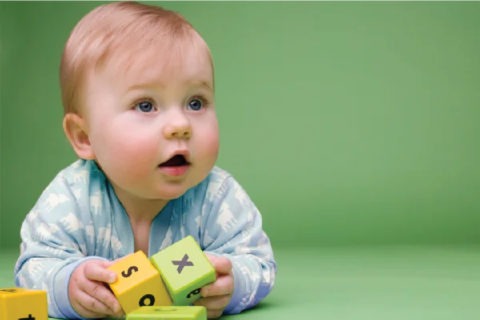
How to Begin Teaching Babies
February 20, 2024
Can Toddlers Learn to Read?
March 28, 2024
Toddlers are curious, energetic, and constantly testing the boundaries of their newfound independence. As parents, guiding them through this phase can be both rewarding and challenging. One of the key aspects of parenting toddlers involves using positive discipline techniques to encourage good behaviour while fostering a loving and supportive environment. In this blog post, we’ll explore effective strategies for implementing positive discipline and nurturing the development of positive behaviours in your toddler.
Understanding Positive Discipline:
Positive discipline is an approach to parenting that focuses on teaching children appropriate behaviours instead of simply punishing unwanted ones. It is rooted in mutual respect, communication, and the understanding that toddlers are still learning about the world around them. Instead of relying on punitive measures, positive discipline aims to build a strong parent-child relationship while instilling values and fostering self-control.

- Set Clear and Simple Expectations: Begin by setting clear and simple expectations for your toddler. Keep in mind that toddlers are still developing their language skills, so use concise language and reinforce your expectations consistently. For example, instead of saying, “Don’t make a mess,” try saying, “Let’s keep our toys in the play area.”
- Use Positive Reinforcement: Positive reinforcement involves acknowledging and rewarding good behaviour. When your toddler exhibits positive behaviour, offer praise and encouragement. This could be as simple as saying, “Great job sharing your toys!” or giving them a high-five. Positive reinforcement helps toddlers understand what behaviours are desirable and encourages them to repeat those behaviours.
- Create a Reward System: Implementing a reward system can be an effective way to motivate toddlers to exhibit good behaviour consistently. Create a chart with specific behaviours you want to encourage, and let your toddler place a sticker on the chart each time they demonstrate positive behaviour. After a certain number of stickers, they can earn a small reward. This not only reinforces positive behaviour but also teaches them about goal-setting and delayed gratification.
- Redirect Negative Behaviour: Toddlers are still learning about appropriate ways to express themselves, and sometimes this may result in negative behaviour. Instead of reacting with anger or frustration, gently redirect their attention to a more acceptable activity. For example, if they are throwing toys, say, “Let’s throw this soft ball instead,” and demonstrate the alternative behaviour.
- Time-In Instead of Time-Out: Rather than using traditional time-out methods, consider implementing a “time-in” approach. This involves staying with your toddler during challenging moments to provide comfort and support. Use this time to talk about their feelings and help them understand why their behaviour was not appropriate. This approach reinforces the idea that you are there to help and guide them, even when they make mistakes.
- Model Positive Behaviour: Toddlers are keen observers, and they often learn by imitating the behaviour of those around them. Be mindful of your own actions and reactions, as your toddler is likely to mirror your behaviour. Model the positive behaviour you want to see in them, whether it’s expressing emotions calmly or using polite language.
- Encourage Communication: Communication is key in positive discipline. Encourage your toddler to express their feelings through words instead of actions. Teach them simple phrases like “I’m angry” or “I need help.” By giving them the tools to communicate effectively, you empower them to express themselves in a more constructive manner.
- Establish Consistent Routines: Toddlers thrive on routine, and having consistent daily routines can help reduce behavioural issues. Establish regular mealtimes, nap times, and bedtime routines. Predictability provides a sense of security for toddlers, making them more likely to exhibit positive behaviour.

Navigating the toddler years requires patience, understanding, and a commitment to positive discipline. By setting clear expectations, using positive reinforcement, and modelling desirable behaviour, you can create an environment that nurtures good behaviour in your toddler. Remember that each child is unique, and what works for one may not work for another. Stay flexible, be attentive to your toddler’s needs, and celebrate the small victories along the way. With a foundation of positive discipline, you can help your toddler develop the social and emotional skills they need to thrive.
Having children’s books, books for babies, board books, etc at home is a great way to inculcate one of the best values in children; and that is the habit of reading. The Learning Time A+ Program has some of the most modern and engaging materials for children to connect with, and to begin the journey of learning.




